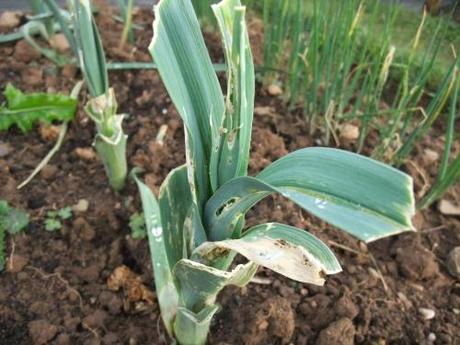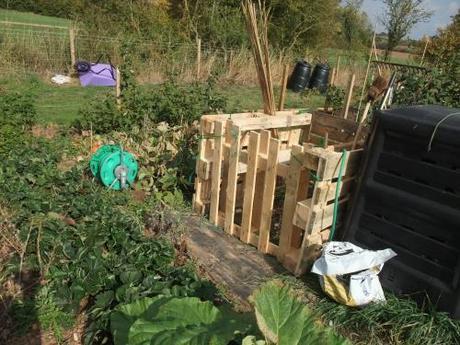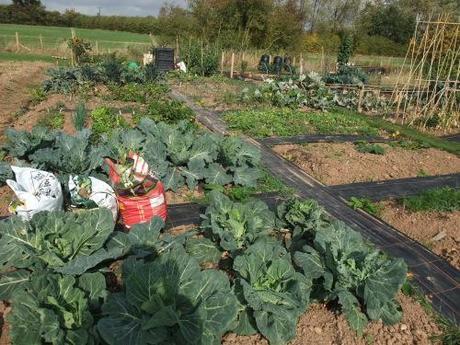 I have been bumbling along as a new allotment holder for the last 11 months thinking that allotment life wasn’t as bad as some make out. Yes I have endless weeding to do and I am thoroughly tired of digging up creeping thistles but the crops have done OK. But this innocence was not to last – my leek crop has been decimated by Leek Moth, the whole lot.
I have been bumbling along as a new allotment holder for the last 11 months thinking that allotment life wasn’t as bad as some make out. Yes I have endless weeding to do and I am thoroughly tired of digging up creeping thistles but the crops have done OK. But this innocence was not to last – my leek crop has been decimated by Leek Moth, the whole lot.
The only consolation to this is that everyone on the sites leeks appear to have been affected including the seasoned vegetable growers so at least it’s not due to my ignorance. I find it surprising since the site is new and was previously arable land and there are no other leeks for quite a way. How on earth do the Leek Moth detect a crop from such a distance? It was a relief to be told what was wrong with my plants but not when I discovered there is little you can do to prevent it or fight it. All the advice is that Leek Moth is prevalent in the south of the country, well I can tell anyone writing a veg growing book that it is prevalent in the Midlands too. It seems the only way of preventing damage is to protect your crop when you plant them out with fleece.

The new compost bin
I have to be honest and say I’m not that keen on netting and fleece all over the site although I am sure given time and pests I will give in to fleece. I will never use netting again having found a dead grass snake wrapped up in some earlier in the summer. I am trying to grow vegetables without using chemicals as well and so far, if you ignore the Leek Moth, I haven’t done too badly. My cabbages were looking excellent but I noticed this weekend that they had been attacked by caterpillars and sure enough I picked off 20 or more and nearly the same again a couple of days ago. However the hearts of the cabbages are so far unaffected so I will plod on.
I don’t find it too disheartening as I am seeing the whole experience of growing vegetables as a learning curve or should I say hill. I have such low expectations of what I will be able to produce that whenever something is successful I am quite euphoric. Salads and spring onions are now doing well after a poor start but I suspect that was due to the high temperatures in April and May and not enough watering. The courgettes have been prolific but not enough to cause a glut which is surprising given I have 3 plants so maybe they haven’t been as prolific as if I had prepared the soil properly. The butternut squash have produced fruits but they are quite small and I’m not convinced they will be worth harvesting, unlike the Uchi Kuri squash which are looking wonderful.

Cabbages looking alright, if you don't look too closely
I am now planning ahead and have planted out overwintering onion sets and early garlic this week. I have some more garlic and shallots to go in when a bed is free. I have completed my vegetable seed order and have spent ages planning my crop rotations but I’m not sure if I will be able to stick to it. I am trying to keep all the space working as much as possible so there is a lot of catch cropping going on albeit in a random fashion. This week has seen some Chinese Cabbage seedlings going in where some of the diseased leeks have been removed.
I plan to try leeks again next year but an earlier variety since I have read Leek Moth is more prevalent in late summer. I also might interplant it with carrots as apparently the carrots deter the Leek Moth and the smell of the leeks deter the Carrot Fly. Although I wonder if that is the case why doesn’t everyone plant their leeks and carrots this way as a matter of course. Time will tell

